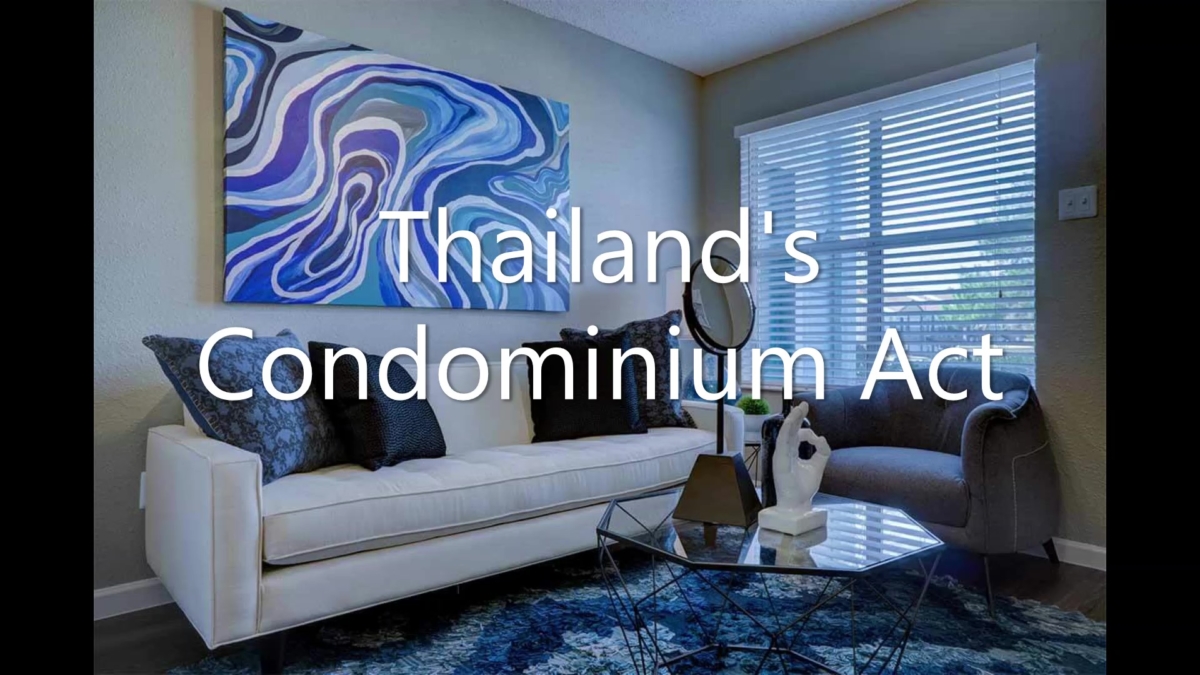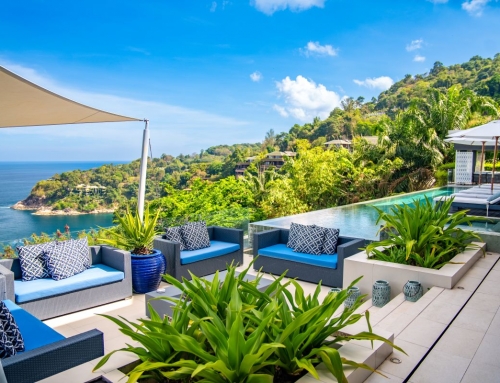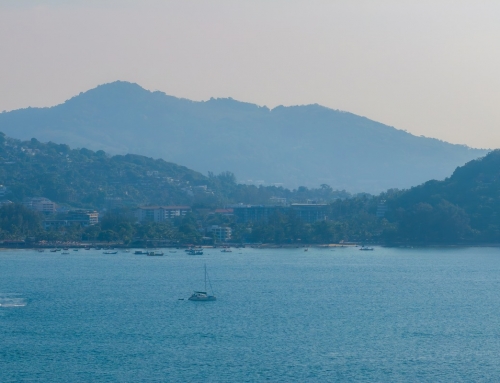Thailand’s Condominium Act was first enacted in 1979. It was the first step toward allowing foreigners to own some type of Thai property, as foreigners had effectively been forbidden to own land for the 9 years leading up to the passage of the Act.
One of the primary aims of the Condominium Act was to attract foreign investment into Thailand. In fact, the reason so many people invest in condominiums in Thailand all started with this first Condominium Act.
Most people are aware that foreigners are still unable to own land in Thailand. But condominiums are different.
A co-owner is an individual or an entity that owns something jointly with all the other owners. And condominiums in Thailand are structured so that they may be “co-owned” by both foreigners and Thais.
This means that that foreigners may own a piece of real estate as a co-owner, including a fractional interest in the common area and the land, as long as it falls within the law.
Everything in the Right Proportion
The laws governing condominium ownership in Thailand are all about how the property is divided up among the co-owners.
For example, a condominium with 100 units of equal size would mean 1/100 co-ownership for each unit. And the ownership of the common area and land would equal the proportion of the living area occupied by each unit.
So in in the example above, each unit would also own 1/100 of the common area and the land.
A foreigner may have freehold ownership of a condo, as long as the total area owned by foreigners in that development does not exceed the legally mandated maximum.
Freehold land ownership by foreigners was once possible in Thailand by right of a treaty, but the last such treaty expired in 1970. Until 1979, the only option left for foreigners was to take a 30-year lease on apartment or a house.
The Condominium Act changed all that, and paved the way for foreign freehold ownership.
The 1979 Condominium Act
The 1979 Condominium Act aimed to bring in foreign investment, but it also wanted to limit the extent of that investment in each individual condo development.
By capping the number of foreigners owning within a given development, every project would always be majority owned by Thai nationals.
The Act passed in 1979 limited foreign ownership to 40%, but as the popularity of condos being bought by foreigners increased, the limit was raised again in a later 1999 Act.
The 1999 Condominium Act
In 1999 the original Act was amended and the permissible foreign ownership threshold went from 40% up to 49%. This paved the way for a further acceleration in the condo market.
As the tourist industry in Thailand flourished, the number of potential buyers visiting the country increased, and that is when condominium sales really began to take off.
The 2008 Condominium Act
The 2008 Act had no room to manoeuvre with the 49% ownership limit, as foreigners were unlikely to receive majority ownership of the land – even on fractional basis split between dozens of individual owners.
The 2008 Condominium Act focused instead on a much more pressing issue for the authorities – protecting consumers.
Buyer Protection
Prior to 2008, there was scant protection for owners/investors in Thai condominiums. There had up until then been many cases of dishonesty and abuse by developers, even including incidences of fraud.
Nearly all of the revisions that year were restrictions imposed on developers. The idea was for buyers to obtain better protection from misleading information, mismanagement and possible project bankruptcies.
Here are some of the important amendments:
Marketing Material Must Be Honest
One such change was aimed at advertising material. Developments sold off plan were often misleading with their marketing material.
Brochures and artists impressions today must be more credible and faithful in their representation of the final finished product.
This new Act helped to set the parameters which ensure that marketing material, including images and information, was accurate.
In fact, the marketing material issued by the developer is now considered part of the purchase contract.
A New Standard Purchase Contract
A standard purchase contract, or deed of sale, provided by the Ministry of Interior was introduced, covering important clauses to protect the consumer.
The intention was to create further protection for the buyer. In fact, if a developer changes anything on this standard contract which could be construed as detrimental to the buyer, that change would not be enforceable in a court of law.
Common Area Fees for Unsold Units
The new Act also covered disputes between owners and developers on common area fees. Problems arose primarily with developments which had not sold out. Developers would sometimes force the owners to contribute toward any shortfall of funds when maintenance work was required.
The 2008 amendments confirmed that the fees payable were only in proportion to ownership, and made it mandatory for the developer to cover all common area costs unsold units, without burdening existing owners.
Common Area Remains Common Area
Prior to 2008 some developers would build on the common area after the condominium had been sold out. Buyers were misled with marketing material and information depicting common area facilities and gardens.
The revisions in the 2008 Act stated that a condominium project must provide objectives that remain in place from the outset. In other words, common areas can no longer be used by a developer for future development and profit.
The Exception to the Condominium Act
The growth in the condominium sector for foreigners has taken off considerably over the last 15 years. Even the last 5 years have seen some areas become almost unrecognizable to how they looked before.
The problem with this expansion in the market is that many projects only attract foreigners. There are only a limited number of Thais interested in living in a resort which might be nearly half owned by foreigners.
Because every condominium project requires 51% of the development be owned by Thais, the developer will often retain ownership of unsold units and use them to generate rental income. As the developer is a Thai entity/company, their ownership of these units is perfectly legal.
If foreigners would like to purchase a unit in a resort, but all the freehold units are already sold, they are allowed to acquire the “Thai units” on a leasehold basis.
This does not infringe upon the 49% foreign ownership cap because the developer retains the freehold ownership of any units which are leased.
(It is important to note, however, that the lease of condos in Thailand is not governed by the Condominium Act, but by the Chapter Hire of Property, laid out in sections 537 – 574 of the Civil and Commercial Code.)
Unfortunately, foreigners are sometimes persuaded to purchase these units with the use of a Thai Company Limited. There are are reasons why we don’t recommend this. You can read our article on this here:
Using a Thai Company Limited to Purchase a Leasehold Condo Unit
Conclusion
Each successive amendment to the Condominium Act over the years has made purchasing a condo in Thailand a much more compelling investment opportunity.
However, new rules do not necessarily mean that they are always followed and it is still advisable for buyers to obtain legal assistance when purchasing condominiums in Thailand.
We have tried to simplify this article for the purpose of easy reading and therefore we have omitted technical details as much as possible.
For those readers that enjoy details and more technical reading, The Office of the Council of State has provided a translation of the Condominium Act which covers all aspects of The Act in detail.
You may click the link below for the full unofficial translation:
http://web.krisdika.go.th/data/outsitedata/outsite21/file/Condominium_Act_BE_2522_(1979).pdf
Read more of our articles on the Phuket real estate market:
Owning a Freehold Condominium through an Offshore Company
Owning a Freehold Hotel-Licensed Condominium in Thailand
Reasons to Invest in Phuket Property for New and Experienced Investors
China’s Spending Spree on Phuket Real Estate





Social Contact